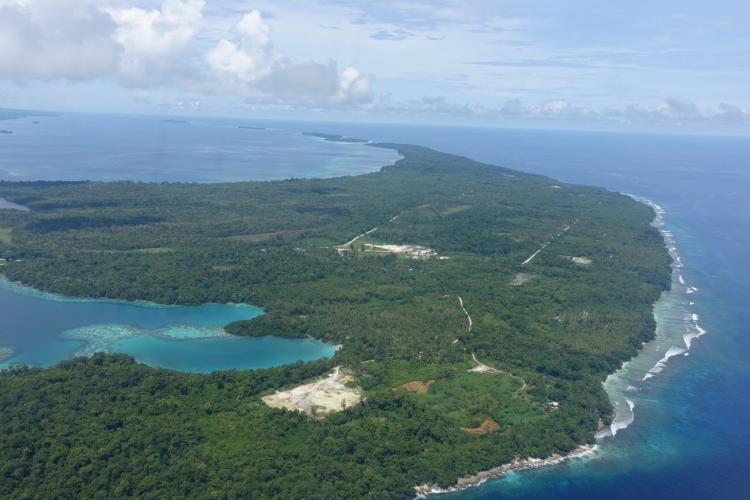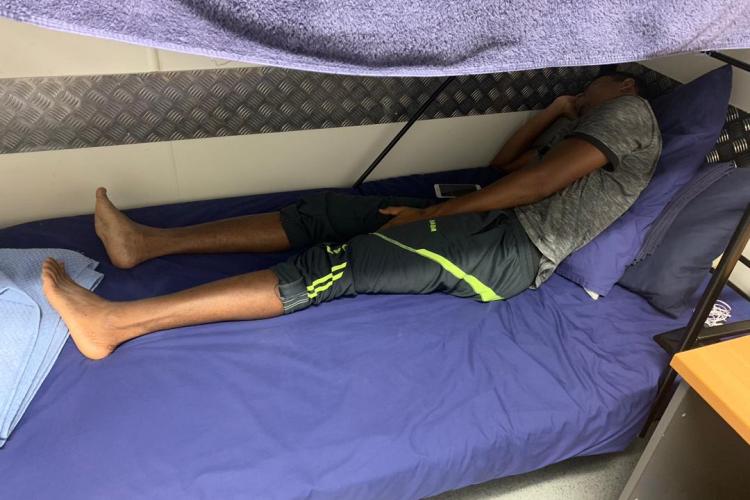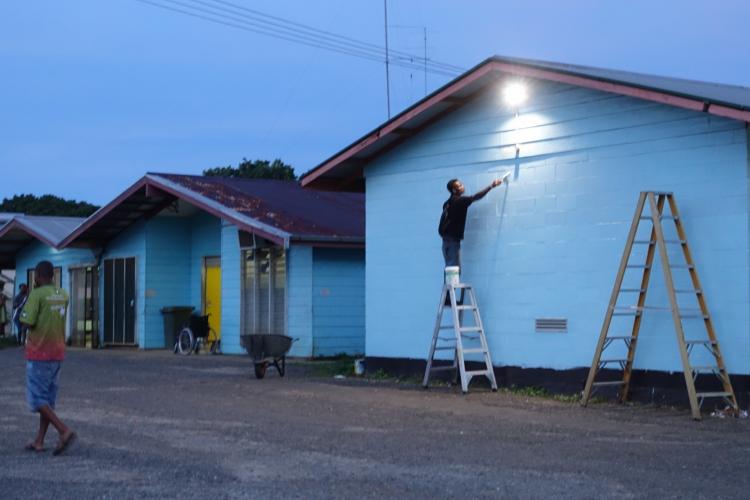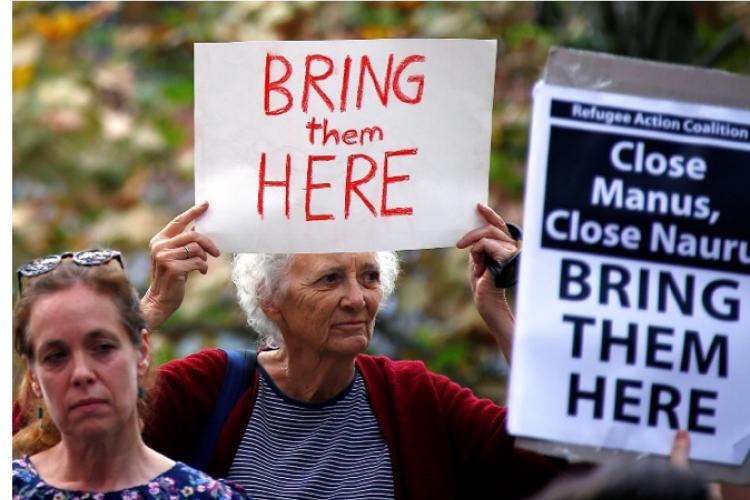Australia’s Duty of Care to Detained Refugees and Asylum Seekers in Nauru and Papua New Guinea
Posted:
Time to read:
Guest post by Akuol Garang. Akuol is completing her LLM in Human Rights Law at Monash University, Australia. She is a migration agent and a human rights advocate based in Melbourne. Her work is particularly driven by refugee issues in Australia and around the world.
For more than five years, the Commonwealth Government of Australia denies responsibility for human rights violations happening in offshore processing of refugees and asylum seekers. This is despite the fact that it exercises effective control over all aspects of detention and processing of refugees and asylum seekers in Nauru and Manus Island regional processing centres. In addition, it had repeatedly ignored recommendations from Australian doctors for the urgent transfer of sick asylum seekers, including children to Australia, while also denying critically ill men, women and children life-saving treatments that could not be provided offshore.

Against this context, a new law commonly known as ‘the Medevac Bill’ was narrowly passed in February this year, according to which sick refugees and asylum seekers in need of urgent medical care can be transferred to mainland Australia upon the recommendation of two or more doctors, which unfortunately the Minister for Home Affairs can still overrule. Perhaps not unrelated to this, the Prime Minister, Scott Morrison, announced the reopening of Christmas Island’s controversial immigration detention centre at a cost of 1.4 billion dollars. In so doing, the Morrison government attempts to circumvent ‘the Medevac Bill’ by sending medical transfers to Christmas Island instead of mainland Australia. Prior to this, transfers were only allowed following the commencement of urgent court proceedings.
In view of recent developments, this post argues that, under common law, the government owes a duty of care to refugees and asylum seekers it detains in offshore processing countries.
Background to offshore detention
Following a steady rise in the number of people arriving via unauthorised boats, in 2001, the Howard Coalition government, with a bipartisan support from Labor opposition, amended the 1958 migration law. Pursuant to Section 198 of the Migration Act 1958 (Cth), the Australian government implemented a law which came to be known as the ‘Pacific Solution’, stating that people arriving in Australia by boat, without a valid visa would be detained and relocated to an offshore processing country like Nauru or Papua New Guinea (PNG). The purpose of the ‘Pacific Solution’ was to prevent asylum seekers arriving by boat from applying for refugee protection in Australia, and from ever being resettled in Australia if found to be refugees. By August 2012, the Australian and Nauruan government signed a Memoranda of Understanding (MOU) providing for the transfer of all asylum seekers to Nauru and PNG. The government took the policy further, by signing a second MOU in August 2013, which provided for the continuation of transfers of asylum seekers to Nauru and the possibility of refugees being settled in Nauru.
Clause 6 of the 2013 MOU, provided that Australia would ‘bear all costs under and incidental to the MOU’ and that the Commonwealth would engage and fund contractors, including interpreters, to assist in the refugee status determination process. Since the establishment of these arrangements, the extent of Australia’s involvement in detaining refugees and asylum seekers in offshore facilities has been an ongoing issue for refugee and human rights advocates, with successive governments dismissing concerns including repeated calls by the United Nations to end offshore processing. Furthermore, a number of media outlets have been reporting extensively (here, here and here) outlining the dire situation these people have reached. While there is clear evidence of self-harm, the central question has always been: who is responsible for the safety of these people?

Case Law
While the Commonwealth has accepted that it has a non-delegable duty of care to refugees and asylum seekers, under their effective control, establishing a breach of that duty requires a number of factors to be considered. In a recent interlocutory matter, in the case of FRX17 v Minister for Immigration and Border Protection 2018] FCA 63 ( FRX17), a mother of a young girl, not yet a teenager, applied for the immediate relocation of her daughter from Nauru to Australia so that she can receive appropriate mental health treatment. The young girl suffered severe mental health issues, including attempted suicide and constant suicidal ideation.
In this case, the Federal Court ordered the Commonwealth to relocate the child from Nauru to Australia agreeing that ‘it was appropriate to grant a mandatory interlocutory injunction to compel compliance with the required standard of care.’ This is a particularly interesting case because the breach of duty of care had not yet taken place; instead, it was only apprehended. Thus, the applicant had to prove that the duty of care would be breached.
The applicant argued that the Commonwealth owed her a duty of care because in the exercise of its powers under s 198 AHA of the Migration Act:
(a) Transferred the applicant from Australia to Nauru (pursuant to ss 198AD and s19AHA of the Act).
(b) Maintains a significant involvement in the day-day operation of regional processing activities in Nauru; and
(c) Maintains a significant involvement in the day-to-day healthcare, education, housing and welfare of the applicant.
Two years prior in a similar case (see, Bromberg J in plaintiff S99/2016) the Commonwealth was ordered to exercise its duty of care towards an asylum seeker who had been raped on Nauru while having an epileptic seizure. Despite abortion being illegal in Nauru and a criminal offence in PNG, the Commonwealth refused her abortion in Australia and transferred her to PNG. The Commonwealth argued that it was not responsible for the welfare of the asylum seeker. It took the intervention of the Federal Court for the government to fly the woman to Australia.
The Medevac Bill
The Commonwealth has a long history of obstructing medical transfers for refugees and asylum seekers needing treatment on mainland Australia. It has fought hard in the courts to deny critically ill men, women and children life-saving treatments that could not be provided off-shore. So, as a response to this , on December 3, 2018, several crossbench MPs introduced into the Federal Parliament the Migration amendment (Urgent Medical treatment) Bill 2018. The aim was to create an independent process free of delay and political obstructions by which refugees and asylum seekers in urgent need of medical care can be transferred to mainland Australia. On 12 February 2019, the bill was passed. While this brings hope that those in offshore detention in need of urgent medical attention will be able to receive it in timely manner in Australia, there are many obstacles before an asylum seeker is transferred to Australia under these terms.

First, the recommendation is given to the Minister for Home Affairs, who has the final say. He or she, under the new law, has ministerial discretion to approve or refuse the transfer as recommended by doctors. The minister can refuse a transfer on security grounds or if he or she disagrees with the clinical assessment. If the minister seeks to refuse the transfer on medical grounds, the recommendation must be assessed by an independent panel within 72 hours; thus, threatening to derail the emergency aspect of it.
What is more, contrary to the government's argument that the policy shift would prompt an influx of new boat arrivals and weaken border policies, the new law merely applies to the cohort of asylum seekers currently on Nauru and Manus Island, PNG, not to any new boat arrivals. Yet, the government still fears that, the introduction of this new law will encourage asylum seeker boats to resume coming to Australia.
So, in response to the new law, the Prime Minister of Australia Scott Morrison announced the reopening of Christmas Island’s detention centre, declaring that refugees and asylum seekers who are found to need a medical transfer will not be sent to mainland Australia, but will first go to Christmas Island, where they will be further assessed. For the transfer to Australia to succeed, they will need to show that they require specialised treatment that could only be provided on the mainland. Furthermore, the medical evacuation law faces another hurdle in Nauru. The Nauruan government has stipulated that recommendations for overseas medical transfers made by telemedicine, electronic audio, and video communications will not be approved. In accordance with regulation 4(1) of Health practitioners (telemedicine Prohibition) Regulation 2019, all recommendations for medical transfers will need to come through the Nauruan hospital, effectively circumventing the medical evacuation law and making the Nauruan government the final decision-makers in this case. This then complicates issues about who is responsible for these people.
While Australia provides services and healthcare provisions for refugee and asylum seeker on Nauru, the prohibition of telemedicine recommendations, will ultimately mean these people are under Nauruan law and therefore, the responsibility of Nauru. However, under s 198 AHA of the Migration Act, Australia remains responsible, given their involvement in the transfer, management, and processing of the asylum seekers and refugees in Nauru- Australian retains responsibility.
Conclusion
The decision to legally ensure that vulnerable people on Nauru receive prompt and proper medical treatment is a step in the right direction but not the end of the story. However, the backpedaling of the government leads to uncertainty, and puts the lives of vulnerable people in further danger. And will likely lead to more preventable deaths in offshore detention. A more humane and ultimately more effective way would be to end mandatory offshore detention and employ community processing. This refutes a left-right dichotomy of politics and points to our basic human need for medical treatment and decency in the face of unimaginable trauma.

Any comments about this post? Get in touch with us! Send us an email, or post a comment here or on Facebook. You can also tweet us.
__________
How to cite this blog post (Harvard style)
Garang, A. (2019) Australia’s Duty of Care to Detained Refugees and Asylum Seekers in Nauru and Papua New Guinea. Available at: https://www.law.ox.ac.uk/research-subject-groups/centre-criminology/centreborder-criminologies/blog/2019/06/australias-duty (Accessed [date])








